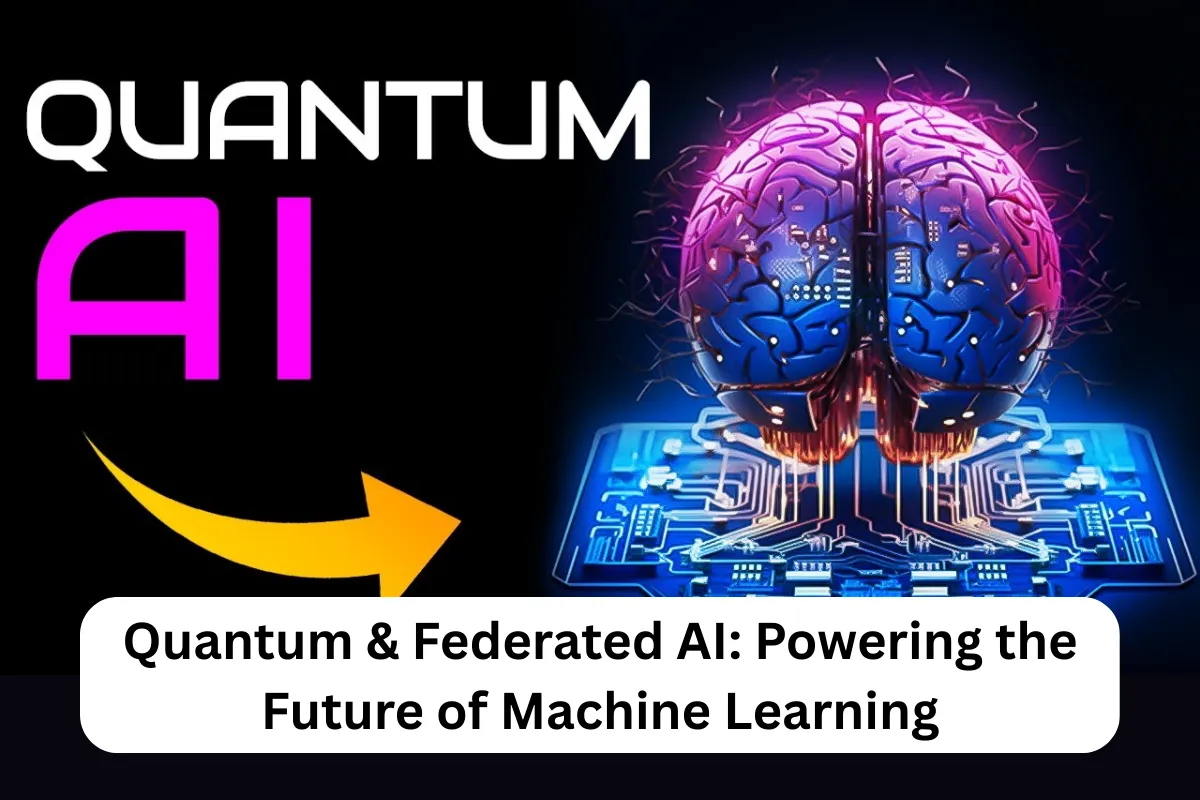Artificial intelligence (AI) is moving beyond traditional methods into advanced fields like Quantum AI and Federated AI. While Quantum AI leverages the power of quantum computing to perform computations at unprecedented speed, Federated AI allows collaborative model training without sharing sensitive data. Together, these technologies promise breakthroughs in both performance and privacy, making AI more powerful and trustworthy.
What is Quantum AI?
Quantum AI integrates quantum computing with machine learning. Unlike classical computers, quantum computers use qubits that can exist in multiple states at once, enabling them to process vast amounts of data simultaneously.
- Speed & Efficiency: Quantum algorithms can accelerate model training, solving problems too complex for classical AI.
- Optimization: Useful in finance, logistics, and drug discovery, where optimization problems are huge.
- Complex Data Processing: Quantum AI can analyze patterns in large datasets faster and more accurately.
What is Federated AI?
Federated AI (or Federated Learning) allows multiple parties to train AI models collaboratively without sharing raw data. Instead of moving data to a central server, the model is trained locally on user devices, and only the updates are shared.
- Privacy Preservation: Protects sensitive information, crucial in healthcare and finance.
- Decentralization: No single point of failure; reduces risk of data breaches.
- Scalability: Enables large-scale AI training across millions of devices.
Comparative Table: Quantum AI vs. Federated AI
| Aspect | Quantum AI | Federated AI |
|---|---|---|
| Core Concept | Uses quantum computing for faster, complex ML tasks | Trains models collaboratively without sharing data |
| Key Advantage | Speed, efficiency, solving problems classical AI cannot | Privacy, security, data decentralization |
| Primary Use Cases | Drug discovery, finance optimization, materials science | Healthcare, banking, mobile AI (e.g., voice apps) |
| Data Handling | Processes massive datasets in quantum states | Keeps data local on devices |
| Challenges | Limited quantum hardware, high cost, technical expertise | Communication overhead, device heterogeneity |
Benefits of Quantum & Federated AI
- Quantum AI: Unlocks faster problem-solving, supports next-gen innovation in medicine, finance, and science.
- Federated AI: Enhances security, meets data compliance requirements (like GDPR), and builds user trust.
- Combined Impact: Together, these approaches can make AI both smarter and safer.
Challenges & Limitations
Despite their promise, both technologies face hurdles:
- Quantum AI: Quantum computers are still expensive and not widely available.
- Federated AI: Requires strong connectivity and efficient communication among devices.
- Integration: Combining both for real-world applications remains complex.
Future of Quantum & Federated AI
The future of AI will likely blend these technologies. Imagine Quantum-powered federated learning, where ultra-fast quantum systems process decentralized data without compromising privacy. Such advancements could redefine industries—bringing faster medical research, safer financial systems, and smarter personal assistants.
Quantum AI and Federated AI represent two transformative directions in artificial intelligence. While Quantum AI pushes the limits of speed and computational power, Federated AI ensures privacy and security in collaborative environments. Together, they offer a future where AI is not only more capable but also more ethical, transparent, and trustworthy.
FAQs on Quantum & Federated AI
1. How does Quantum AI differ from traditional AI?
Quantum AI uses qubits for parallel computation, enabling faster problem-solving than classical AI.
2. What industries benefit most from Quantum AI?
Pharmaceuticals, finance, logistics, and scientific research gain the most from quantum-powered optimization.
3. How does Federated AI protect privacy?
It trains models locally and shares only updates—not raw user data—keeping sensitive information secure.
4. Can Quantum AI and Federated AI work together?
Yes. Quantum computing could accelerate federated learning, combining speed with data privacy.
5. What are the main challenges of these technologies?
Quantum AI faces hardware limitations and high costs, while Federated AI struggles with device diversity and communication overhead.
